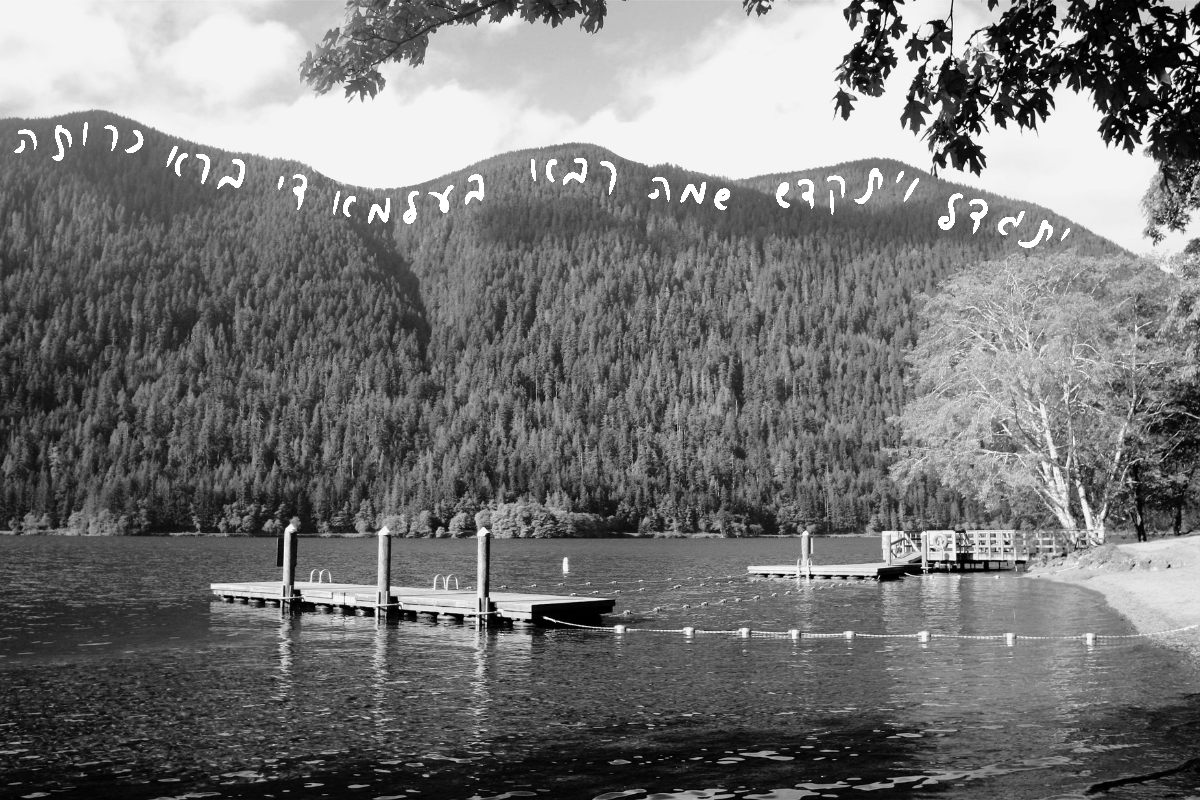For many Jewish kids, sleepaway camp is their first chance at independence and being away from their parents. For me, each summer at camp provided an escape from the harsh realities of living with a parent who was an addict. Camp gave both my brother and me a chance to play, just be kids and have a life separate from the story we knew back at home.
Every Friday summer evening for 10 years, I participated happily in Shabbat services as Jewish songs, prayers and stories echoed through the outdoor basketball court at the sleepaway camp I attended. Friday night services were a tradition and a special moment for the hundreds of kids at our camp to come together and feel camaraderie in our Judaism.
We’d spend an hour belting out the Hebrew words we had memorized after years of repetition. As a kid who craved center stage, I was a little theatrical during these services. A crowd favorite was seeing how low my voice could get singing the line “shevet achim gam yachad!” during “Hinei Ma Tov.” My brother would roll his eyes at my ridiculousness, but at the end of the day, my theatrics were always rooted in a desire to be connected to others.
When it came time for the Mourner’s Kaddish, I suddenly became demure. Yes, I was a respectful kid, but there was more to it. “If you’ve experienced the death of someone close to you, you may now rise for the Mourner’s Kaddish,” the camp director would say each week.
At that point in my life, I hadn’t lost anyone, not even a grandparent. But part of me longed to stand. The Mourner’s Kaddish felt like the epitome of belonging. Shared Judaism was one thing, but to have a transcendent spiritual connection based on hurt seemed like an even more profound fusion of togetherness. Strangely, I longed for camaraderie like this. As those few kids stood, I’d look at them with admiration, and even envy. “I feel so bad for them,” people would murmur. I wished I too could stand and announce my pain to the community.
Many years later, I experienced the harsh reality of the kids who stood up all those years — and it quickly hit me that I no longer wanted to be one of them. In 2012, my brother died by suicide after a long battle with addiction. It was a painfully lonely experience. Now that I had aged out of summer camp, I felt I had no place to stand with peers during the Mourner’s Kaddish.
I had no space to even say the words “my brother died” — and the truth was, I didn’t want to. Facing reality felt too painful. I knew temples, support groups and friends could help, but I just couldn’t bring myself to enter the doors of truth. I had hidden so much for so long, and it just felt easier to add this to the list. It took me a few years to figure out where to turn.
Then, in 2017, I realized I needed to go back to my roots, to camp. Eventually, I found a grief camp that was accepting volunteer applications to be a camp counselor. It was a no-brainer. I packed my bags and returned to summer camp. What I found were kids who had all lost someone important and were all figuring out how to navigate life through grief. And just as powerful, I met fellow volunteers who had also lost a sibling, a parent, a friend or a family member.
Camp was healing for me. I hadn’t had that much fun since my brother died. And, it reminded me so much of the sleepaway camp we had attended together as kids. But the added beauty of this camp was how much it supported the emotional well-being of grieving campers and volunteers. There were facilitated peer-support opportunities, bereavement activities designed to help campers and volunteers develop coping skills, and so many different beautiful and spiritual expressions of grief.
And, for the first time, I was able to say publicly and in community that I’ve experienced hardship — not only with my brother’s death, but with topics many people avoid: addiction, shame, grief and trauma. It was the first time I truly felt seen. Just by being in this space, I knew I wasn’t alone. This — standing, for the first time, in my truth — was my Mourner’s Kaddish.
When I left camp, I knew I had been transformed. I had stepped into a new reality, one where I didn’t want to stop sharing my story. On the plane ride home from camp, I opened my laptop and started typing my grief story. I quickly realized that what I was doing was typing my cover letter to work at the grief camp I had just left. This was the place I had longed for my whole life — not just for my grief, but for my childhood, my identity, my wholeness. I had found it, and I wasn’t going to let it go.
I knew it wasn’t just about me. It was about the community of grievers and the way society holds them. According to the US Census Bureau, there are 2.6 million deaths per year in the United States, resulting in 13 million grievers annually, if we average five grievers per death. Grief is everywhere. I was ready to set myself on the path to help shape the way our culture views grief and the ways we resource and show up for one another. In healing myself, I was moved to help heal others — my personal tikkun olam.



